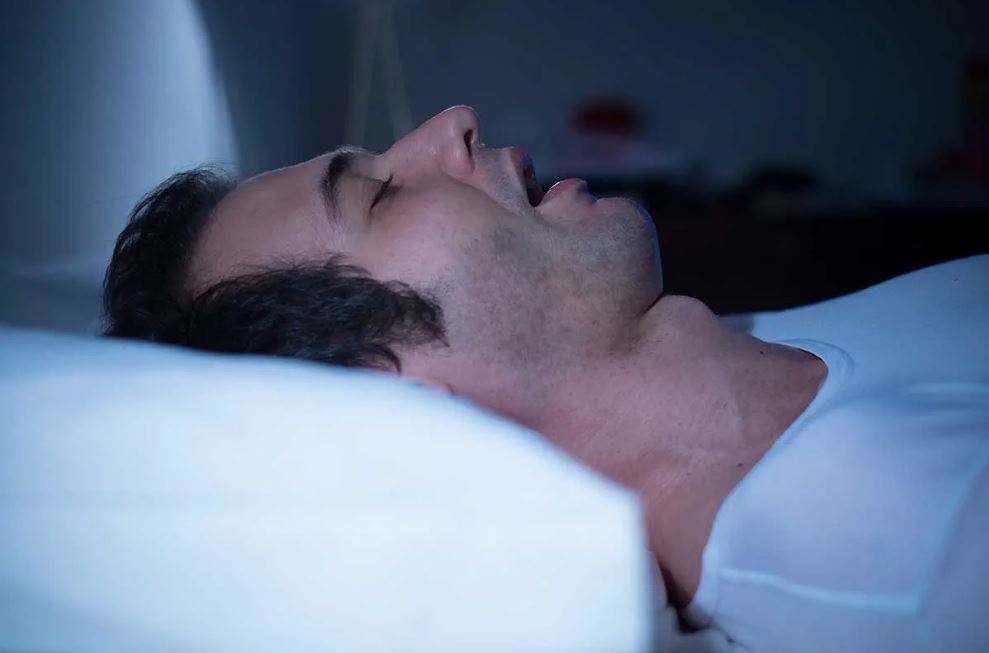The fatigue and sluggishness that often accompany sleep apnea can make it difficult to carry out even the simplest of daily tasks. On the other hand, if you are a truck driver, this might wreak havoc on your capacity to carry out the responsibilities of your work in an adequate manner.
Fortunately, there are preventative steps that may be taken that will make it simpler for you to continue working as a truck driver while having sleep apnea diagnosis. Follow along as we describe the several things that truck drivers may take to gain relief from their sleep apnea and retain their optimum performance while they are out on the road.
See also: Does My Spouse Has Sleep Apnea?
Understanding Sleep Apnea
An individual who suffers from the sleep condition known as obstructive sleep apnea will, while they are sleeping, encounter a number of interruptions in their breathing. This occurs when the soft tissues that are found within the throat collapse and restrict the airway, which results in the individual having difficulty breathing. As a consequence of this, the person may have to choke, hack, or gasp for air in order to clear the obstruction, only to experience the same obstruction again not long after.

If a person’s sleep apnea is not addressed, the condition can lead to a number of unpleasant symptoms, including morning headaches and nausea, excessive daytime drowsiness, irritability, and difficulties concentrating and remembering things. Although anybody can be affected by sleep apnea, those who are overweight, have a bad diet, smoke cigarettes, and are over the age of 40 are more likely to have the condition. Because they frequently satisfy these requirements, truck drivers are at an increased risk for developing sleep apnea.
How to Become a Truck Driver Even If You Suffer from Sleep Apnea
Truck drivers have an elevated risk of obstructive sleep apnea not just due to the fact that trucking is a male-dominated sector but also due to the fact that their eating and drinking habits while on the road may not be the healthiest. It is possible for truck drivers to feel unrested and sluggish as they go about their route if their sleep apnea is not well managed or if they do not make adjustments to a lifestyle that is unhealthy. This puts both the truckers’ lives and the lives of those on the road at jeopardy. It’s also possible that untreated sleep apnea will have a detrimental impact on their overall health.
The following are some recommendations that we have for truck drivers who suffer from sleep apnea so that they can preserve their own safety as well as the safety of others around them:
- Ensure that you get sufficient nourishment from your meals — When you’re on the road, it’s simple to pick meals that aren’t good for you. Many people who drive trucks prefer to get something fast from a fast food restaurant so that they may eat while they are behind the wheel rather than take the time to sit down and enjoy a meal. This results in decisions that are harmful to your health, which raises the chance of breathing difficulties and can wreak havoc on your entire health.
- Make use of continuous positive airway pressure (CPAP) machine: – Using CPAP machine is one of the most efficient approaches to cut back on the amount of instances in which your breathing may get disrupted. Even while it might not appear to be the most practical piece of gear to have with you on the road, a travel pillow can make a world of difference in the amount and quality of sleep you get. This, in turn, can make you a safer driver since it allows you to feel more refreshed.
- Make sure you get at least 8 hours of sleep every night. When travelling, it might be challenging to maintain a rigid timetable for everything. In order to avoid a storm or make your appointment on time, you might have to travel through the night. It is essential for truck drivers who have sleep apnea to receive at least eight hours of sleep every night in order to lessen the likelihood of becoming sleepy during the day. This applies regardless of the circumstances.
- If you have sleep apnea, you should avoid driving after midnight. People who have sleep apnea feel more fatigued than those who do not have the condition, even when they obtain the recommended amount of sleep. It is advised that truck drivers who have sleep apnea strive to do the most of their driving during daytime hours since it is much easier to concentrate on the road during the day than it is during the night. This will help them avoid being overly exhausted while they are behind the wheel.

Making Arrangements for a Sleep Study in Truckers’ Homes
An in-home sleep apnea test is an alternative that is not only pleasant but also convenient and economical for truck drivers. In the event that you require an additional sleep apnea test, you are free to do a self-administered sleep study in the privacy and convenience of your own home (or on the road).
If a patient has been diagnosed with obstructive sleep apnea, continuous positive airway pressure (CPAP) therapy is frequently suggested as a treatment option. We are able to provide the commercial truck driver with the necessary equipment to meet their needs. We provide devices known as AutoPAP that function in a manner analogous to that of CPAP; however, the device is able to modify the pressure as necessary.
The auto-adjusting positive airway pressure (APAP) equipment will keep the driver’s airways open as they sleep by supplying self-adjusted air pressure at various points during the night. This will enable the driver to have a more restful and profound slumber. A truck driver who gets enough sleep is a safer driver, which in turn saves both time and money.

